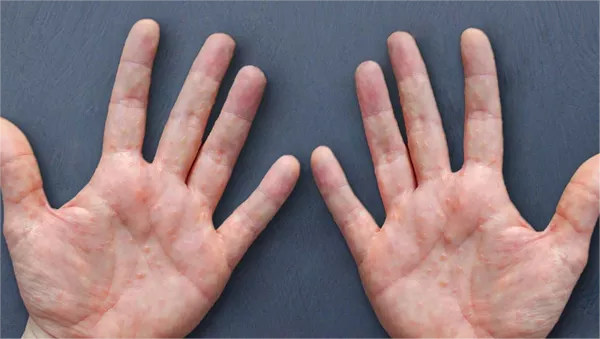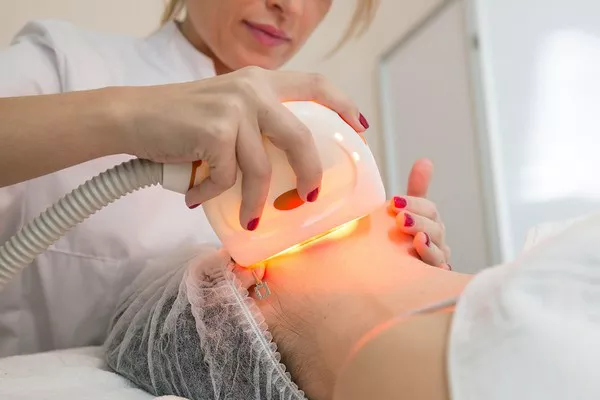Eczema, or atopic dermatitis, is a chronic skin condition characterized by inflammation, itchiness, and redness. Beyond these symptoms, many sufferers also experience post-inflammatory hyperpigmentation (PIH), leading to discoloration and uneven skin tone. Discoloration from eczema can be a source of distress, but with the right approach, it is possible to manage and even reduce these pigmentation changes. This article explores the causes of eczema-related discoloration and offers evidence-based strategies for treatment.
Understanding Eczema and Discoloration
What Causes Discoloration in Eczema?
Eczema triggers an inflammatory response in the skin, which can lead to the destruction of skin cells and the release of inflammatory mediators. As the inflammation subsides, the skin can develop hyperpigmented or hypopigmented patches, resulting in darker or lighter areas compared to the surrounding skin. Factors contributing to discoloration include:
- Severity of Inflammation: More intense inflammation often results in more noticeable pigmentation changes.
- Skin Type: Individuals with darker skin tones are more prone to hyperpigmentation.
- Scratching and Rubbing: Frequent scratching or rubbing of affected areas can exacerbate inflammation and pigmentation changes.
- Sun Exposure: UV radiation can darken hyperpigmented areas and cause further skin damage.
Types of Discoloration
Discoloration from eczema can manifest as:
- Hyperpigmentation: Darker patches of skin due to increased melanin production.
- Hypopigmentation: Lighter patches where melanin is decreased or absent.
Both forms of discoloration can be distressing and may persist even after the eczema flare-up has resolved.
Preventative Measures
Managing Eczema Symptoms
Effective management of eczema symptoms is crucial in preventing discoloration. Strategies include:
- Moisturizing: Keeping the skin well-hydrated can reduce the severity of eczema flares. Emollients and moisturizers help restore the skin barrier and prevent dryness.
- Topical Steroids: These medications can reduce inflammation quickly, helping to control flare-ups and prevent excessive scratching and rubbing.
- Avoiding Triggers: Identifying and avoiding triggers, such as allergens, irritants, and stress, can help minimize flare-ups.
- Proper Skin Care Routine: Gentle skin care products that are free from harsh chemicals and fragrances can prevent irritation.
Sun Protection
Protecting the skin from the sun is vital, especially for those prone to hyperpigmentation. Effective sun protection strategies include:
- Broad-Spectrum Sunscreen: Use a broad-spectrum sunscreen with at least SPF 30. Apply it generously to all exposed skin, even on cloudy days.
- Protective Clothing: Wear long sleeves, hats, and sunglasses to shield the skin from UV rays.
- Seek Shade: Stay out of the sun during peak hours (10 AM to 4 PM).
SEE ALSO: How to Treat Itchy Blisters on Feet
Treatment Options for Discoloration
Topical Treatments
Several topical treatments can help reduce hyperpigmentation and even out skin tone:
- Hydroquinone: This skin-lightening agent can inhibit melanin production. It is available in various concentrations, but higher concentrations require a prescription.
- Retinoids: Prescription-strength retinoids, like tretinoin, can promote cell turnover and reduce pigmentation. Over-the-counter retinol products can also be effective but may take longer to show results.
- Vitamin C: As an antioxidant, vitamin C can brighten the skin and reduce hyperpigmentation by inhibiting melanin synthesis.
- Niacinamide: This form of vitamin B3 can reduce pigmentation and improve the skin barrier.
- Azelaic Acid: Often used for acne, azelaic acid can also help lighten hyperpigmented areas.
Medical Treatments
For more persistent or severe discoloration, medical treatments may be necessary:
- Chemical Peels: These involve applying a chemical solution to the skin, causing it to exfoliate and peel off. This can improve skin texture and tone.
- Laser Therapy: Various lasers, such as fractional laser and intense pulsed light (IPL), can target pigmentation and stimulate collagen production.
- Microdermabrasion: This minimally invasive procedure exfoliates the skin, removing the outer layer and improving skin texture and tone.
Natural Remedies
Some natural ingredients have shown promise in treating hyperpigmentation:
- Aloe Vera: Known for its soothing properties, aloe vera can also help lighten dark spots.
- Licorice Extract: This extract contains glabridin, which inhibits melanin production.
- Green Tea Extract: The antioxidants in green tea can protect the skin and reduce pigmentation.
- Soy: Soy-based products can help reduce hyperpigmentation by inhibiting melanin transfer.
Consistent Skin Care Routine
Establishing and maintaining a consistent skin care routine is essential for managing eczema and discoloration:
- Cleansing: Use a gentle, non-foaming cleanser to avoid stripping the skin of its natural oils.
- Moisturizing: Apply a thick, fragrance-free moisturizer immediately after bathing to lock in moisture.
- Sun Protection: Daily use of broad-spectrum sunscreen, even on cloudy days, is crucial.
- Targeted Treatments: Incorporate products specifically aimed at reducing pigmentation, such as those containing niacinamide, vitamin C, or retinoids.
Psychological and Emotional Support
Coping with Discoloration
Dealing with the visible effects of eczema and discoloration can be emotionally challenging. It is important to address the psychological aspects:
- Support Groups: Joining a support group for eczema sufferers can provide emotional support and practical advice.
- Counseling: Professional counseling or therapy can help individuals cope with the emotional impact of skin conditions.
- Education: Learning more about eczema and its treatments can empower individuals to manage their condition effectively.
Building Confidence
Building confidence despite skin discoloration involves focusing on overall well-being:
- Healthy Lifestyle: A balanced diet, regular exercise, and adequate sleep can improve skin health and overall well-being.
- Self-Care Practices: Engaging in self-care practices, such as mindfulness and relaxation techniques, can reduce stress and improve mental health.
- Positive Affirmations: Using positive affirmations can help build self-esteem and foster a positive self-image.
Conclusion
Discoloration from eczema is a common and distressing issue, but with the right strategies, it can be managed effectively. Preventative measures, such as managing eczema symptoms and protecting the skin from the sun, are crucial. A combination of topical treatments, medical interventions, and natural remedies can help reduce hyperpigmentation and even out skin tone. Additionally, addressing the psychological impact of eczema and discoloration through support and self-care is essential for overall well-being.
By adopting a comprehensive approach that includes skincare, medical treatments, and emotional support, individuals with eczema can achieve clearer, more even-toned skin and improve their quality of life. It is important to consult with a dermatologist to develop a personalized treatment plan tailored to individual needs and skin types. With patience and persistence, it is possible to effectively treat discoloration from eczema and enjoy healthier, more radiant skin.
Related Topics:


























